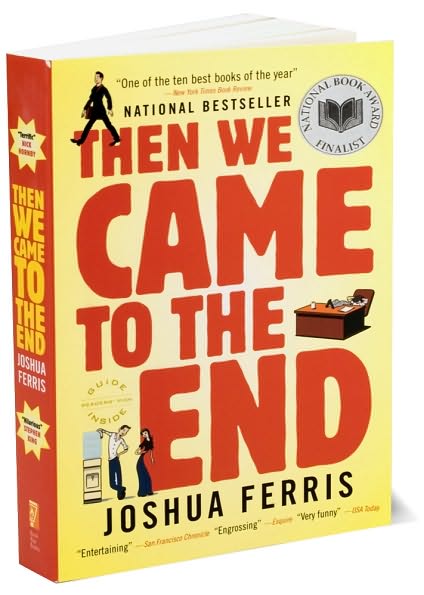 I’m so confused about whether I liked this book or not. I mean, I did, but there was something bizarre about it at the same time. The novel, the tale of one very bad period at an advertising firm in the early aughts, is effectively written from the first person plural perspective. The narrator speaks for an entire group of coworkers, recounting the group think, the petty frustrations, the affection, the crushes, the anxieties, the cliques within cliques. It’s funny and entertaining. It’s also disconcerting to leave an office where you live all these same minor dramas each day and then go home to read an only slightly heightened reality of the same thing.
I’m so confused about whether I liked this book or not. I mean, I did, but there was something bizarre about it at the same time. The novel, the tale of one very bad period at an advertising firm in the early aughts, is effectively written from the first person plural perspective. The narrator speaks for an entire group of coworkers, recounting the group think, the petty frustrations, the affection, the crushes, the anxieties, the cliques within cliques. It’s funny and entertaining. It’s also disconcerting to leave an office where you live all these same minor dramas each day and then go home to read an only slightly heightened reality of the same thing.
Joshua Ferris has captured something not at all unique in a very unique way, and there was something hilarious/disappointing/affirming about confirming that our own workplace dysfunctions—which always feel so immediate and important—are played out in a million offices across thousands of cities the entire nationwide.
Ferris does try to get a little too clever for the book’s good in the conclusion, but it was satisfying nonetheless. This might be especially entertaining for those of you who are living the freelance or work-at-home life and miss some of the drama inherent in offices.
Here’s a short excerpt to give you a taste of the book:
We recalled looking at Frank and thinking he had six months, tops. Old Brizz, we called him. He smoked like a fiend. He stood outside the building in the most inclement weather, absorbing Old Golds in nothing but a sweater vest. Then and only then, he looked indomitable. When he returned inside, nicotine stink preceded him as he walked down the hall, where it lingered long after he entered his office. He began to cough, and from our own offices we heard the working-up of solidified lung sediment. Some people put him on their Celebrity Death Watch every year because of the coughing, even though he wasn’t an official celebrity. He knew it, too, he knew he was on death watch, and that certain wagering individuals would profit from his death. He knew it because he was one of us, and we knew everything.

0 comments:
Post a Comment